
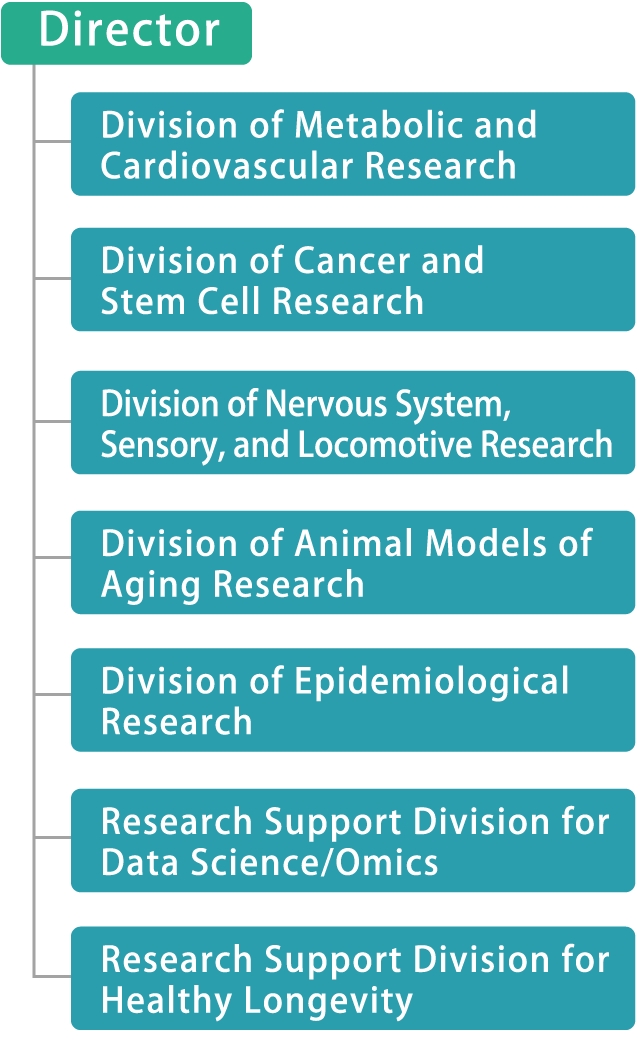
Laboratory
Click on the name of the laboratory to see its contents.
Division of Metabolic and Cardiovascular Research
Department of Medical Biochemistry
Professor Kazuya Yamagata
Sirtuins (SIRT1-SIRT7) are a family of NAD+ dependent protein deacylases that are involved in the process of aging, and the onset of aging-related diseases. We are currently focusing on the functional roles of SIRT7 in aging and aging-related diseases and exploring novel findings that contributes to the extension of healthy life expectancy.

Department of Molecular Genetics
Professor Yuichi Oike
We aim to ① clarify the association between ‘chronic inflammation’, which is caused by alteration of the homeostatic mechanism based on intercellular communications (parenchymal and stromal cells), and ‘age-related diseases’, ② elucidate the molecular basis of ‘attenuation of mitochondrial biogenesis with age’ and ‘individual aging’ and subsequent development and progression of ‘age-related diseases’, and ③ develop novel therapeutic approaches for the diseases.
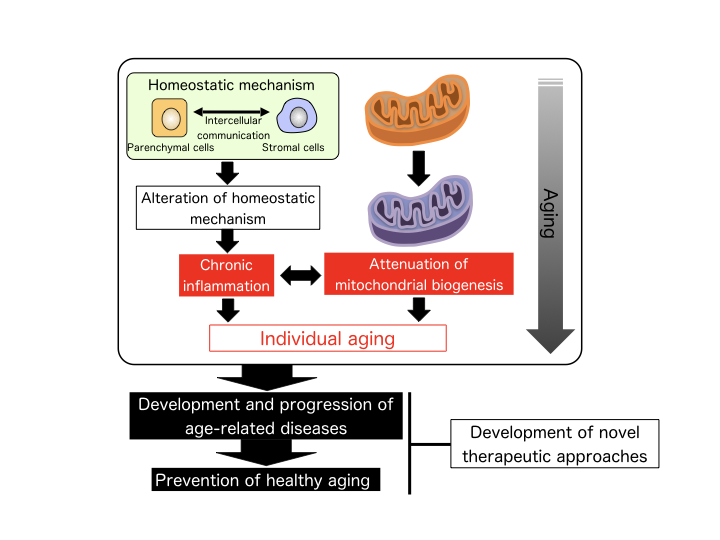
Department of Metabolic Medicine
Professor Naoto Kubota
Our researches focus on the metabolic disorders including diabetes and dyslipidemia. Especially, we investigate the novel therapeutic approaches for diabetes and atherosclerosis applying heat shock response pathway, newly identified miRNA, and suppression of macrophage proliferation.
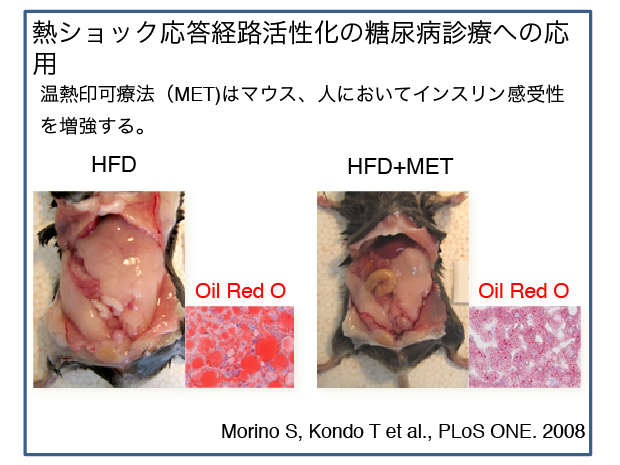


Department of Cardiovascular Medicine
Professor Kenichi Tsujita
We try to invent an innovative prevention or treatment strategy for cardiovascular diseases, through the combination usage of murine disease models and multicenter randomized clinical trials. we try to proceed the translational researches.

Department of Medical Cell Biology[Institute of Molecular Embryology and Genetics]
This research will investigate the molecular regulation of epigenome-energy metabolism crosstalk during senescent changes. We have found that the protein methyltransferases function for senescence-associated metabolic remodeling.

Department of Anatomy
Associate Professor Yuichirou Arima
At the Department of Anatomy, our research is grounded in the perspectives of developmental biology and anatomy, focusing on the fundamental question of how the shapes of organs and tissues are formed and what developmental histories they encode. Building on expertise cultivated in the field of cardiovascular research, we have expanded our scope beyond the heart and vasculature to encompass multiple organs and a broad spectrum of diseases. Through this approach, we aim to elucidate how structural formation and environmental responses during developmental stages influence disease susceptibility and pathophysiology in adulthood. Ultimately, through these efforts, we seek to propose strategies for mitigating environmental stress and promoting preventive approaches that contribute to healthy longevity.

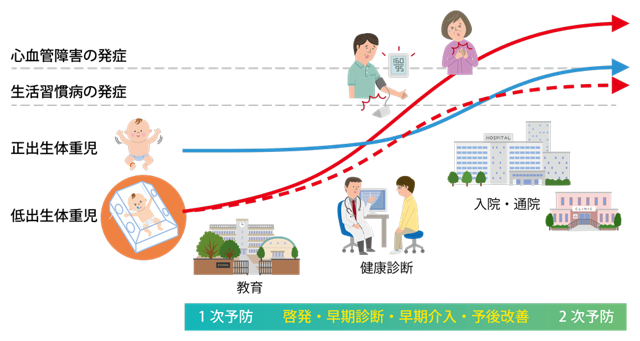
Department of Nephrology
Professor Hideki Yokoi
Chronic kidney disease (CKD) such as diabetic kidney disease and hypertensive nephrosclerosis is becoming prevalent worldwide and its morbidity increases with age; one-eighth of a general population suffers from CKD in Japan. We aim to clarify the mechanisms and pathophysiology of the disease in order to explore novel diagnostic and therapeutic strategies to combat CKD.
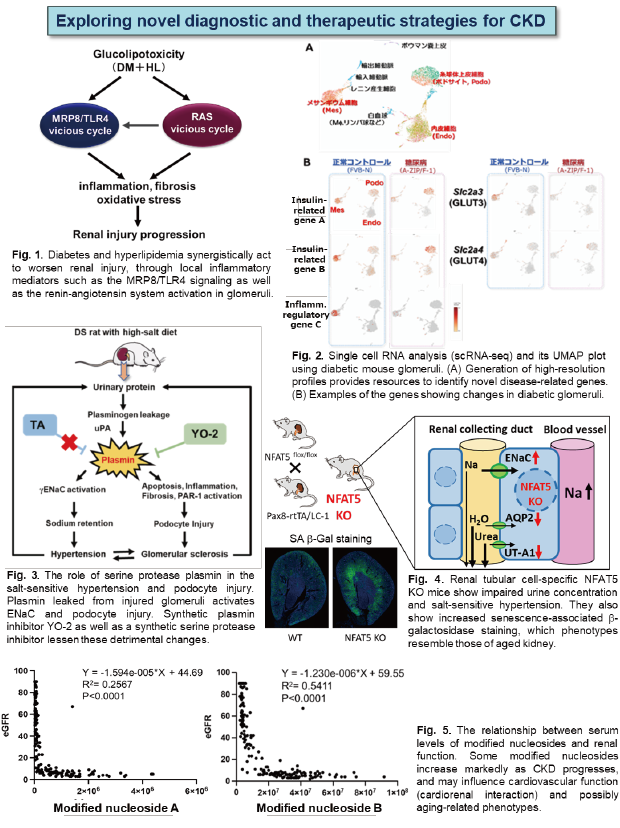
Division of Cancer and Stem Cell Research
Department of Gastroenterological Surgery
Professor Masaaki Iwatuki
DNA damage repair and immune systems are deeply involved in carcinogenesis associated with age. We conduct a scientific research to elucidate the risk factors of carcinogenesis with age in gastrointestinal cancer.
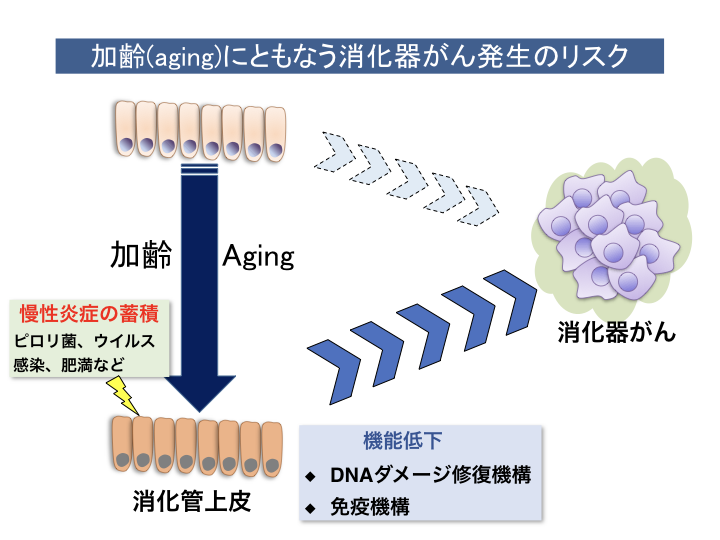
Department of Stem Cell Stress[International Research Center for Medical Sciences]
Professor Hitoshi Takizawa
■Understanding of ageing-associated changes in HSC behaviour and their microenvironment
Ageing of hemato-lymphoid system is characterized by thymic involution, expansion of memory B and T cell pool, narrowed spectrum of acquired immune receptors, favored myelopoiesis at the expense of lymphopoiesis, clonal hematopoiesis, all of which are involved in increased susceptibility to infection, and increased risk of myeloid blood cancer. Some of these ageing phenotypes are presumably attributed from functional changes of hematopoietic stem cell (HSC), including decreased self-renewal, myeloid biased lineage output, and accumulation of genetic ablations. Here we set out to ask the question how relatively intrinsic and extrinsic changes affect HSC functionality during ageing, with main focus on HSC divisional behavior, given that there is a correlation between stem cell division and risk of cancer.
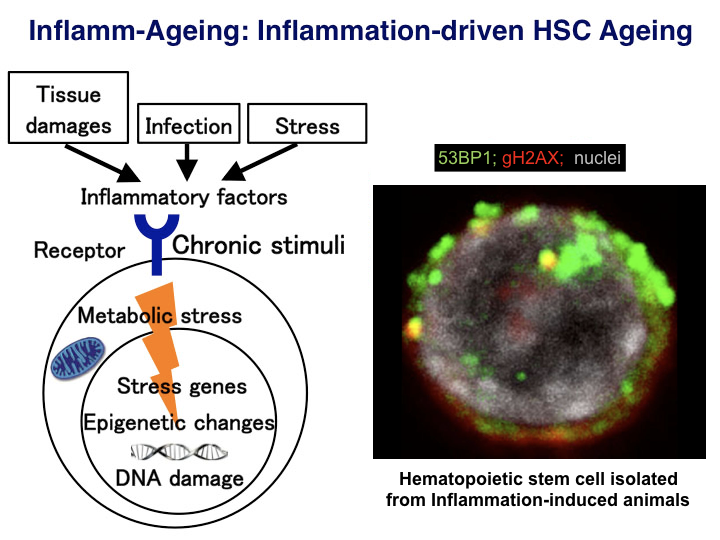
Department of Gastroenterology and Hepatology
Professor Yasuhito Tanaka
Our aims are to develop original translational researches using clinical specimens and animal models on the themes of early diagnosis of chronic inflammation and liver fibrosis due to viral infection and lifestyle, and inflammatory carcinogenesis. We contribute to the health and longevity of the people.

Department of Cell Pathology
Professor Yoshihiro Komohara
We have been invested the detail macrophage functions in various diseases using human samples and murine disease models. Since 1980s, so many research articles related to “macrophage” have been published from our laboratory. Our main techniques are immunostaining, PCR, Western blot, producing monoclonal antibody, gene construction, cell culture, microarray, and electron-microscopy. We are now focusing on following research.
Diagnostic Radiology
Professor Toshinori Hirai
he peri-neoplastic microenvironment is deeply involved in the carcinogenic process of tumors. Our group is conducting fundamental research into the imaging of the microenvironment (macrophage immune response and hypoxia) around brain tumors, in particular by quantitative susceptibility mapping (QSM) using MRI.
Department of Respiratory Surgery
Professor Makoto Suzuki
Lung cancer is a disease that mostly occurs in elderly people and is greatly affected by aging. We work every day to develop better multidisciplinary treatments and perform safe and minimally invasive surgeries, starting with basic research on the mechanisms of lung cancer carcinogenesis.
Neurosurgery
Professor Akitake Mukasa
Department of Neurosurgery is engaged in both basic and clinical research to elucidate the causes and develop treatments for various brain diseases, including malignant brain tumors, cerebrovascular disorders, and functional brain disorders, which are closely related to aging in their development and progression.
Department of Molecular and Medical Pharmacology
Division of Nervous System, Sensory, and Locomotive Research
Department of Neurology
Professor Mitsuharu Ueda
■Study of amyloidosis and aging
As aging related phenomenon, amyloidosis is one of the most important disease related reaction of human beings. We have been examining the pathogenesis and their therapies of various types of amyloidosis, such as Alzheimer disease, Parkinson disease, and other novel types of amyloidosis.
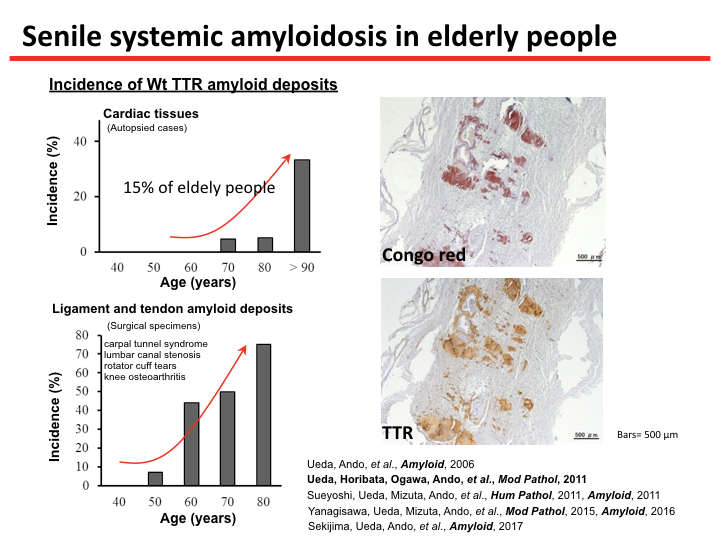
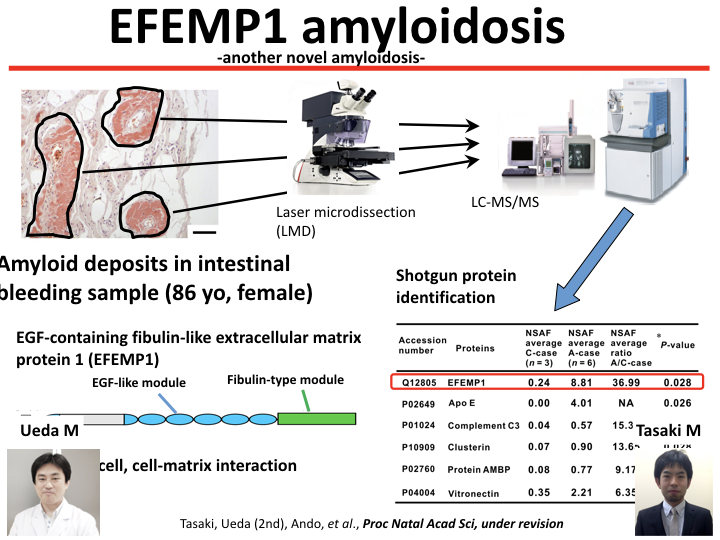
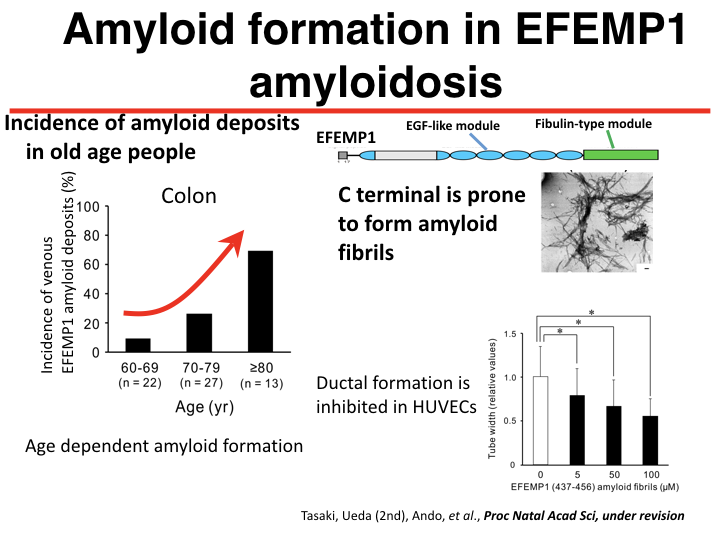
Department of Molecular Physiology
Professor Kazuhito Tomizawa
■Study of the mechanism on aging and age-related diseases by RNA modomics
tRNAs are chemically modified and the modifications are critical for the regulation of quality and quantity of protein translation. We developed the method of high-throughput analysis of tRNA modifications called tRNA modomics. In this center, we aim the elucidation of the mechanism on aging and the development of age-related diseases such as diabetes and glaucoma using tRNA modomics.
Department of Sensory and Cognitive Physiology
Professor Wen-Jie Song
The Sensory and Cognitive Physiology Lab works on auditory neuroscience, the auditory cortex in particular. Hearing related disorders affect a large proportion of the population, especially the elderly. While focusing on basic research, we also explore the etiology and possible treatment of age-dependent hearing loss.
Department of Molecular Brain Science
Professor Kazuya Iwamoto
We study the pathophysiology of neuropsychiatric disorders such as dementia and mood disorders by examining the pattern and frequency of epigenetic and somatic mutations accumulated during aging.
Department of Ophthalmology
Professor Toshihiro Inoue
The aim of our study is to overcome the visual loss due to glaucoma, that is developed and progresses along with aging. We try to improve both medical and surgical therapeutics, and to establish novel therapeutics including neuroprotection.

Department of Orthopaedic Surgery
Department of Muscle Development and Regeneration[Institute of Molecular Embryology and Genetics]
Professor Yusuke Ono
We aim to understand molecular and cellular mechanisms underlying muscle plasticity and regeneration to develop novel therapeutic strategies for muscle diseases such as age-related sarcopenia and muscular dystrophy.

Department of Central Metabolic Regulation
Associate Professor Chitoku Toda
We are studying (1) what molecular mechanisms allow the brain to integrate information from the periphery and maintain whole-body energy homeostasis, (2) why this brain function is impaired in obesity, depression, and aging, and (3) how to improve impaired brain function.
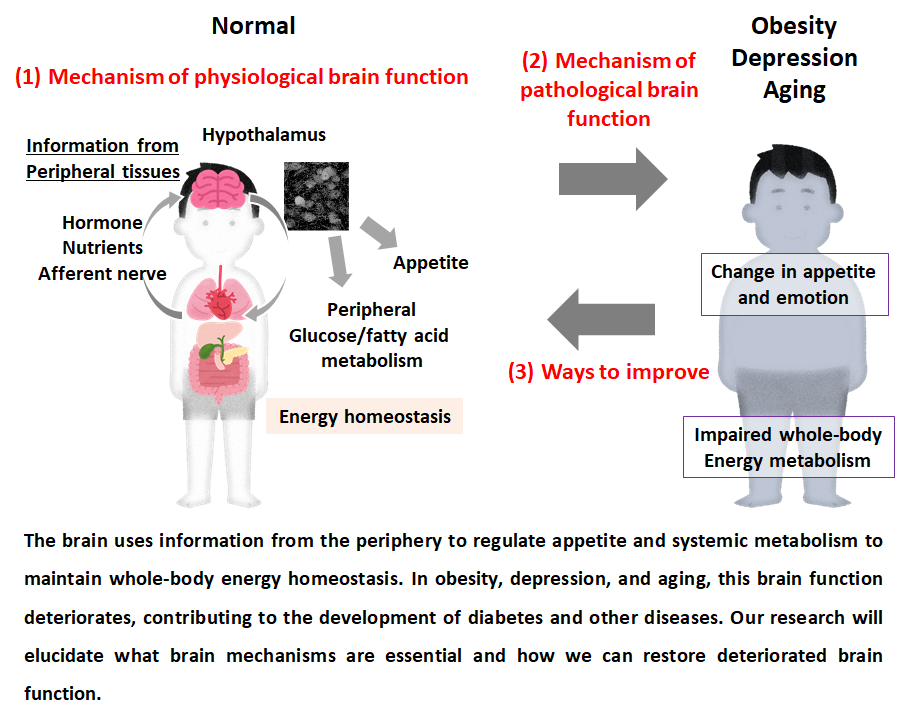
Department of Psychopathology
Professor Minoru Takebayashi
We focus on “mental health” as an essential component of healthy longevity. Our research is particularly centered on developing novel treatments for stress-related psychiatric disorders such as depression—including drug development, nutritional therapy, and neuromodulation—as well as conducting multifaceted studies aimed at preventing dementia.
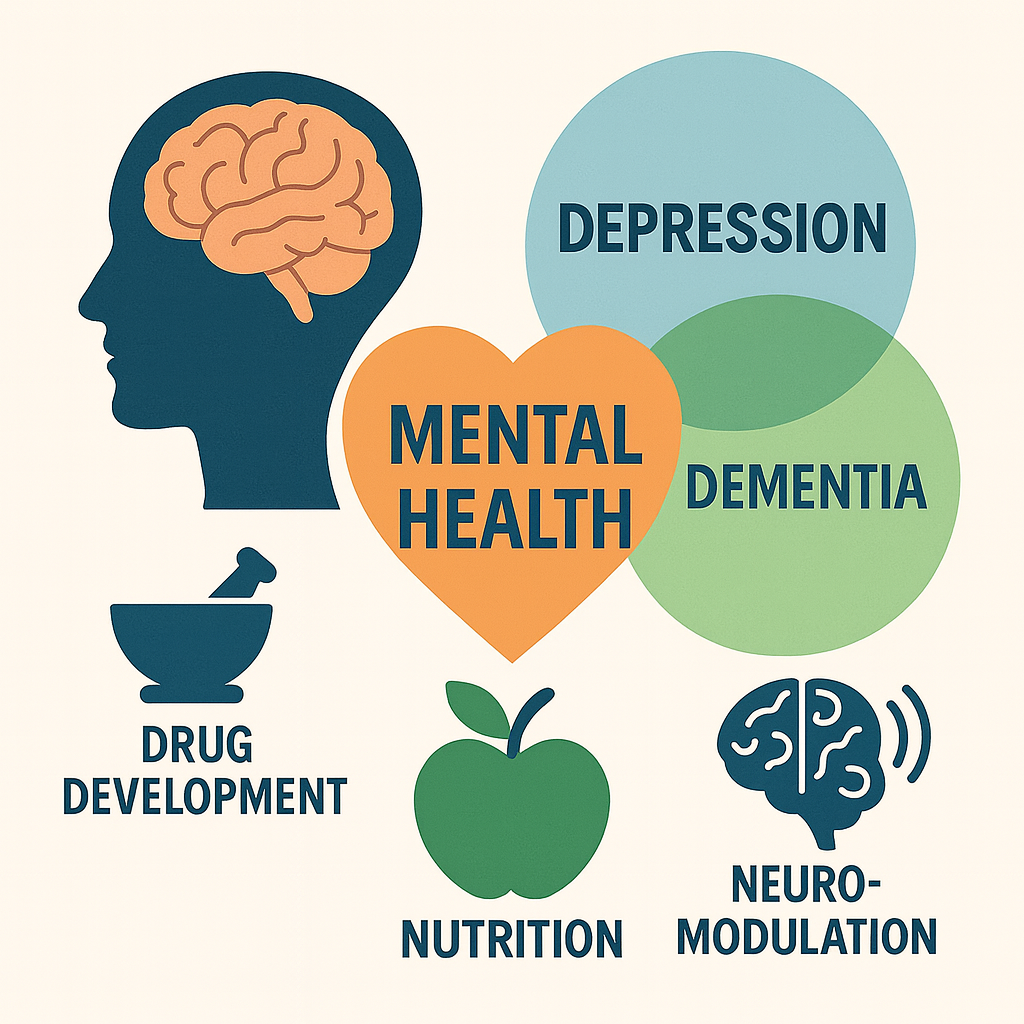
Division of Animal Models of Aging Research
Department of Aging and Longevity Researches
Naked mole-rat (NMR) has two extraordinary characteristics: 1) longevity (around 30 years), although its body mass is similar to that of the house mouse, and 2) cancer resistance. Being the only breeding and research facility of NMR in Japan, we are studying the mechanisms of NMR’s extraordinary resistance to aging and cancer.
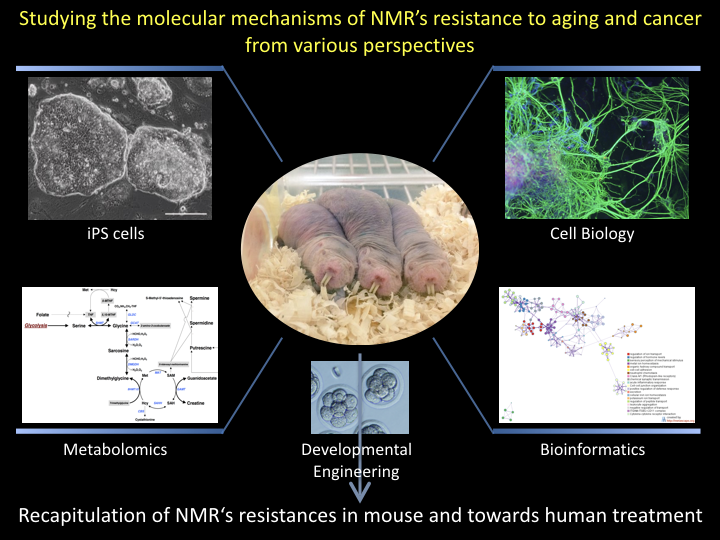
Division of Developmental Genetics[Institute of Resource Development and Analysis]
Professor Kimi Araki
We are developing efficient genetic manipulation methods in mice incorporating various techniques such as CRISPR-Cas and site-specific recombination, and analyzing gene functions in vivo using knock-out and/or transgenic mice. We also support researchers for production of genetically engineered mice.
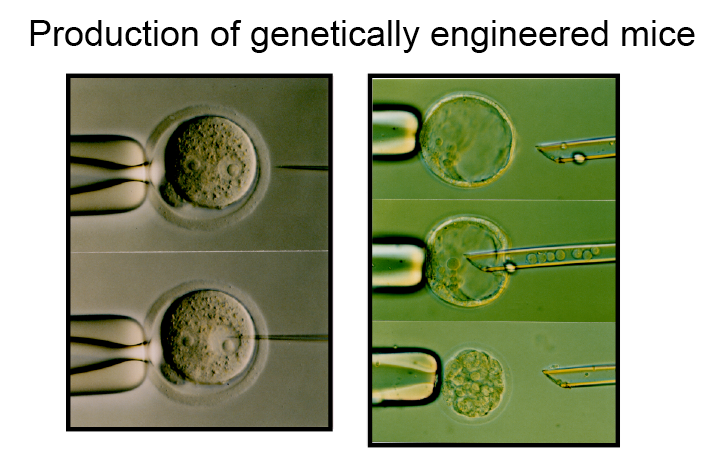
Division of Epidemiological Research
Department of Public Health
Human health & disease conditions are determined by the complex interplay between genetic susceptibility and environmental exposure, including life style. We are interested in researching and discovering the genetic and environmental causes of health disparities. Understanding genetic susceptibility to environmental agents will allow more precise identification of the environmental agents that cause diseases, and the true risks of exposures. We are currently engaged in the following research projects: 1) molecular epidemiological studies of gene-environment interactions in cancer etiology; 2) epidemiological study of the relationship between harmful factors in environment and children’s health condition and development.
Department of Neuropsychiatry
In the Neuropsychiatric department, we conduct community-based prospective cohort study in Arao City, Kumamoto Prefecture, for the purpose of evaluating quantitatively environmental and genomic risk factors for dementia in Japanese and of establishing effective preventive strategies for dementia. This is a collaborative study of 8 universities across Japan, in which more than 10,000 elderly people have been enrolled.
Research Support Division for Data Science/Omics
Introduction Research
Assistant Professor Tomonori Tsuyama
We provide supports for NGS data analyses (transcriptome, epigenome, and single cell analyses etc.) to members of the center. In addition, we are trying to foster personnels involved in bioinformatic analyses through trainings and seminar activities. Please feel free to contact Tsuyama (t-tsuyama(at)Kumamoto-u.ac.jp) for any inquiries.
International Research Center for Medical Sciences
Associate Professor Daisuke Kurotaki
We are studying epigenetic changes including 3D chromatin structures during aging and oncogenesis and their significance in the regulation of gene expression. We also provide technical support for next-generation sequencing analysis such as Hi-C, CUT&Tag, and ATAC-seq.
Division of Genomics
Research Support Division for Healthy Longevity
Introduction Research
Specially Appointed Assistant Professor Naoto kajitani Japan is facing a significant social problem with the rapid increase in dementia cases, especially as it is an aging society. To address this issue, it is crucial to conduct epidemiological studies to understand the actual status of various diseases among local residents and to identify their risk and protective factors. I am currently participating in a large-scale dementia cohort study aimed at promoting a healthy and long-lived society. This study involves collecting information on endpoints such as dementia, depression, and death from 10,000 elderly individuals selected from eight regions across Japan, and analyzing the data longitudinally using standardized methods. Through this study, we hope to identify the risk factors for dementia and depression and establish effective prevention methods.
Specially Appointed Assistant Professor Nobuhiro kajihara
Our country is the world’s leading aging society, and there is a demand in healthcare for extending healthy life expectancy. Primarily due to aging, the natural decline in overall muscle mass and strength, leading to a decrease in physical abilities, is known as sarcopenia, believed to influence the severity of various diseases and survival duration. I am leading a clinical study aimed at preventing sarcopenia through dietary and exercise interventions, with the collaboration of local communities, as I believe it enables the maintenance of independent daily living and contributes to extending healthy life expectancy.
©2018 Faculty of Life Sciences Kumamoto University.